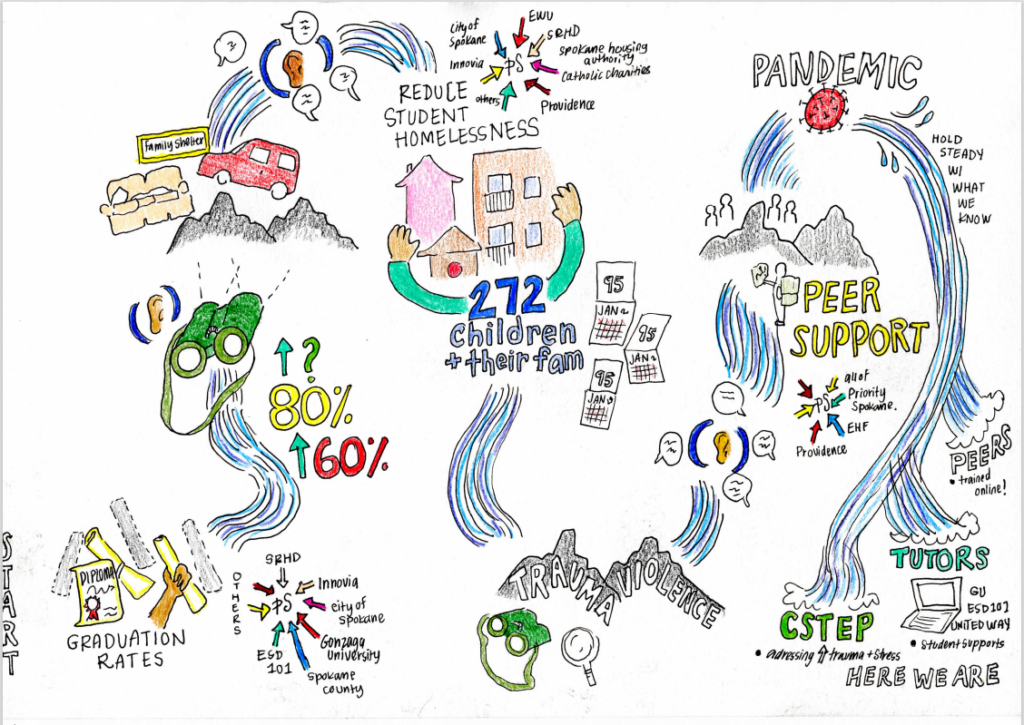Priority Spokane has moved from priority to priority learning, collaborating, and continuing to swim upstream to address root causes in our mission to improve the health and wellbeing of Spokane County. We have a rich legacy of our important work done locally going on to make a difference nationally. We started with our first priority increasing high school graduation rates from below 60% to over 80% by 2015 but discovered students facing homelessness still weren’t graduating and that homelessness was and is a major obstacle facing our region. In our next priority in 2016, we focused on stabilizing homeless students and their families as part of our second priority. We developed a model to house/stabilize homeless families that housed 272 children and, after three years, kept 98% stable and housed. This model is now used nationally in 5 different states. Through that work we learned that trauma and violence play a major role as a root cause of homelessness. So for our third priority in 2019, we focused on addressing trauma and preventing violence through the expansion of Peer Support- utilizing specially trained individuals with lived experience with homelessness, addiction, and mental health issues to both reach and support those currently struggling. The pandemic changed our work a bit, but we adapted and quickly worked with partners to provide free tutoring and mentoring to 176 high-need K-12 students during the pandemic. We also developed STEP (Stress and Trauma Education Program) to help our region respond to the added trauma caused by COVID 19 and to provide needed mental health support virtually during the pandemic. We also funded the creation of a Peer Support network in Spokane County to better equip and connect area Peer Specialists, and we helped create a virtual peer training program so peers could still be certified and enter the workforce during the pandemic. Thanks in part to our efforts, the number of organizations utilizing Peer Support increased in Spokane County by 31% to 34 organizations over four years.
Thank you to former Vice Chair, Emma Noyes, for her artistic talents in creating this storyboard.
